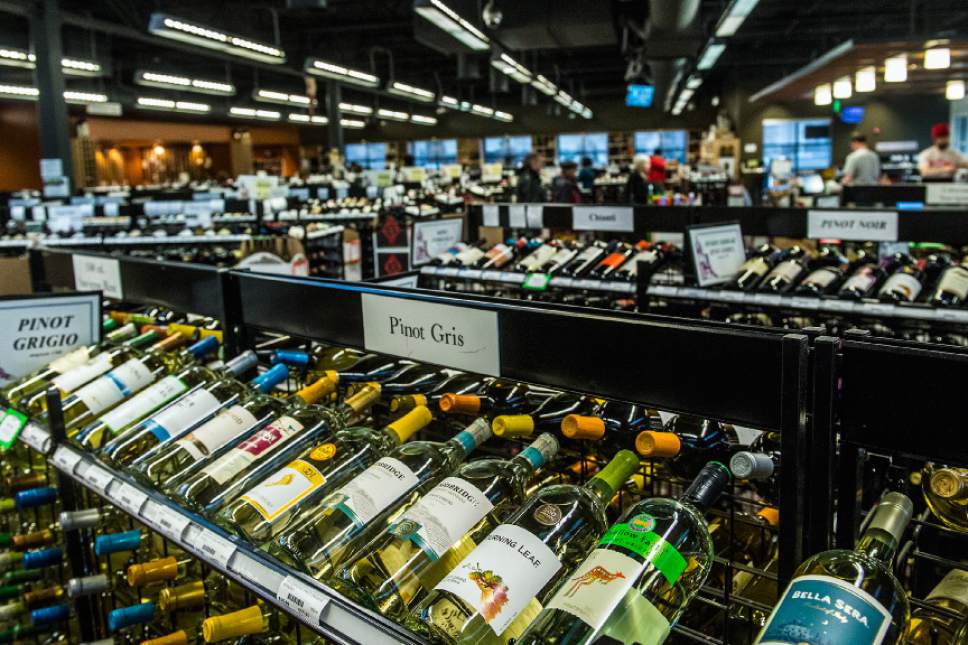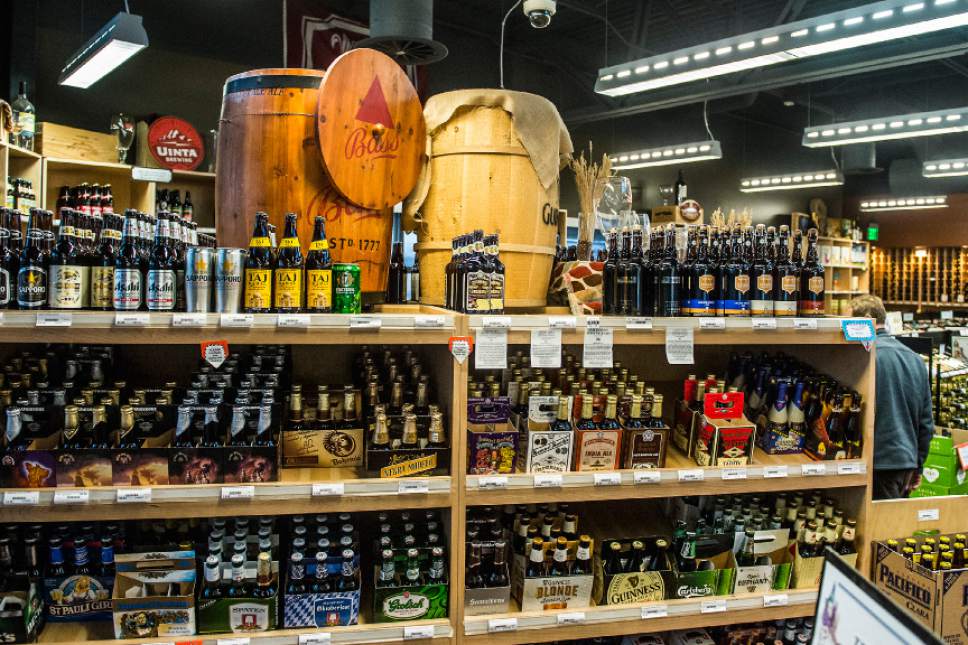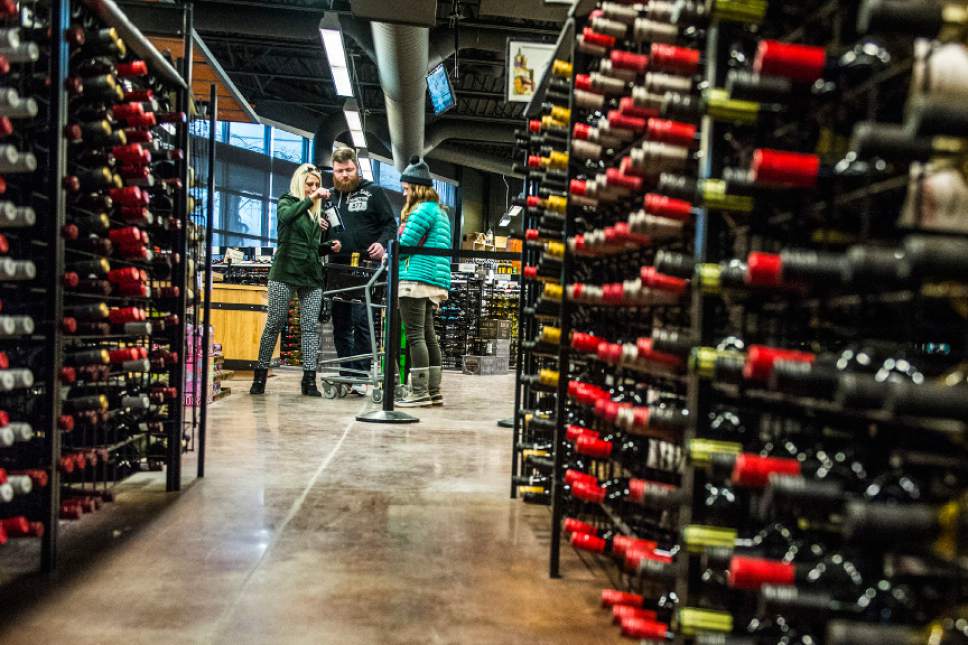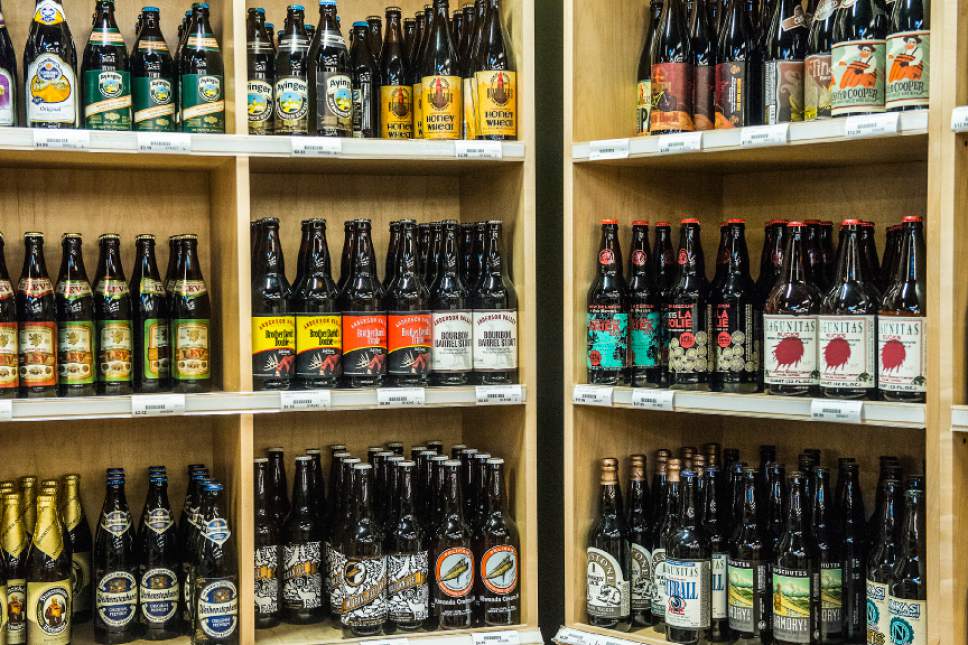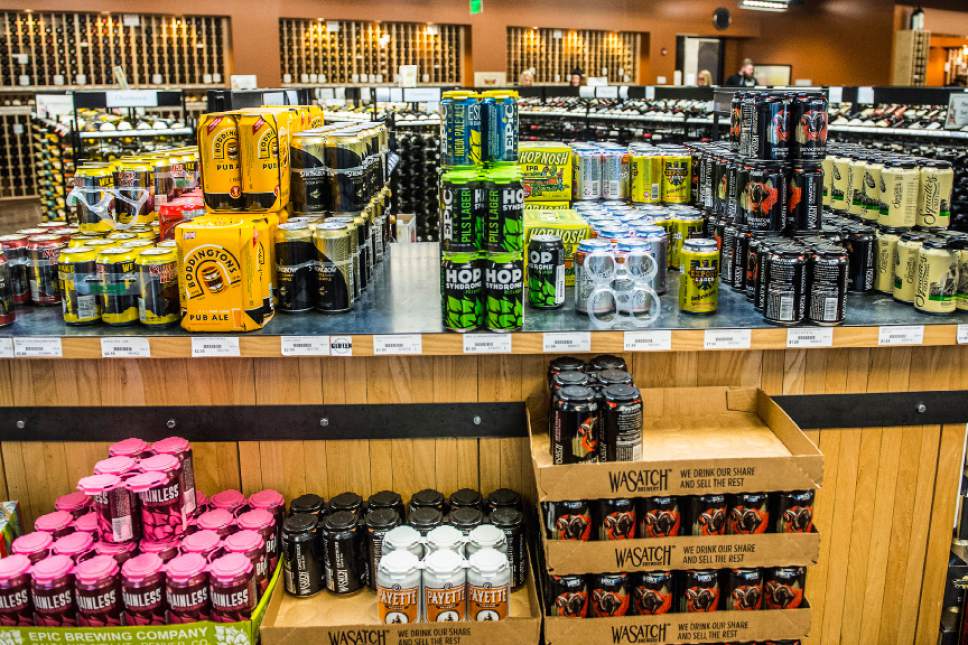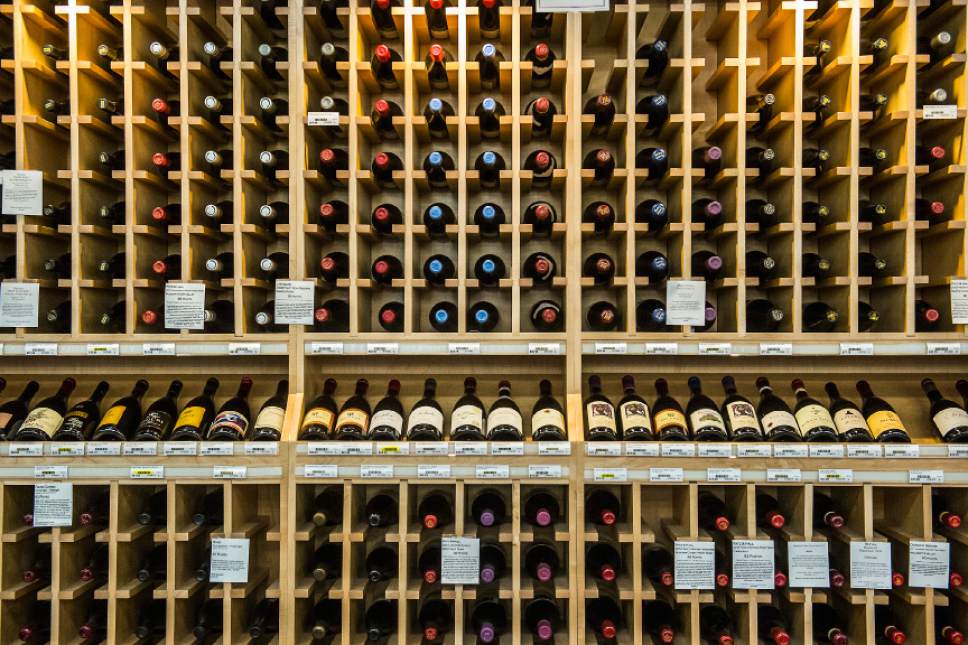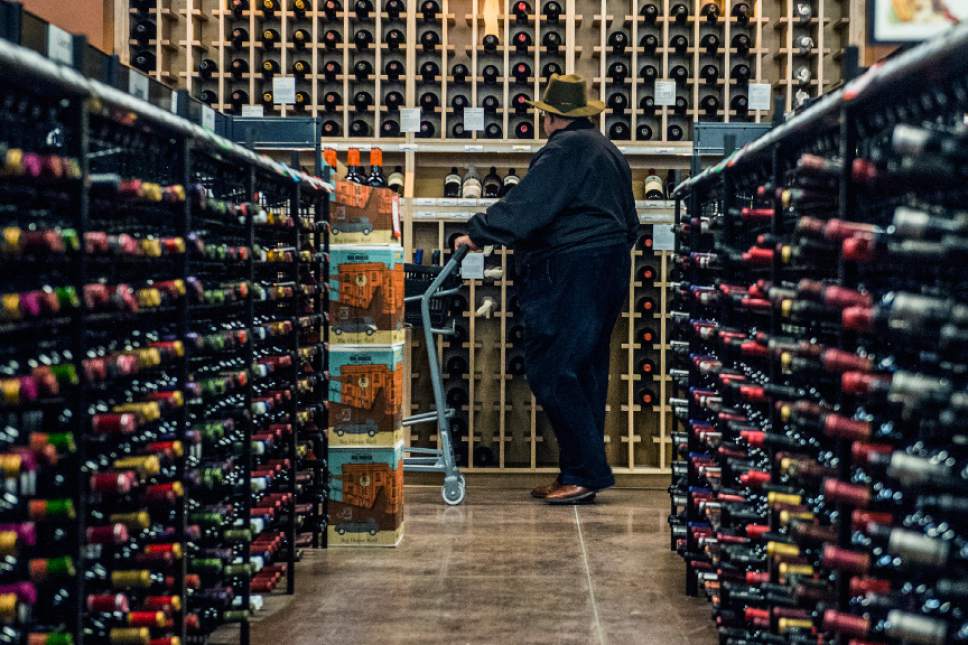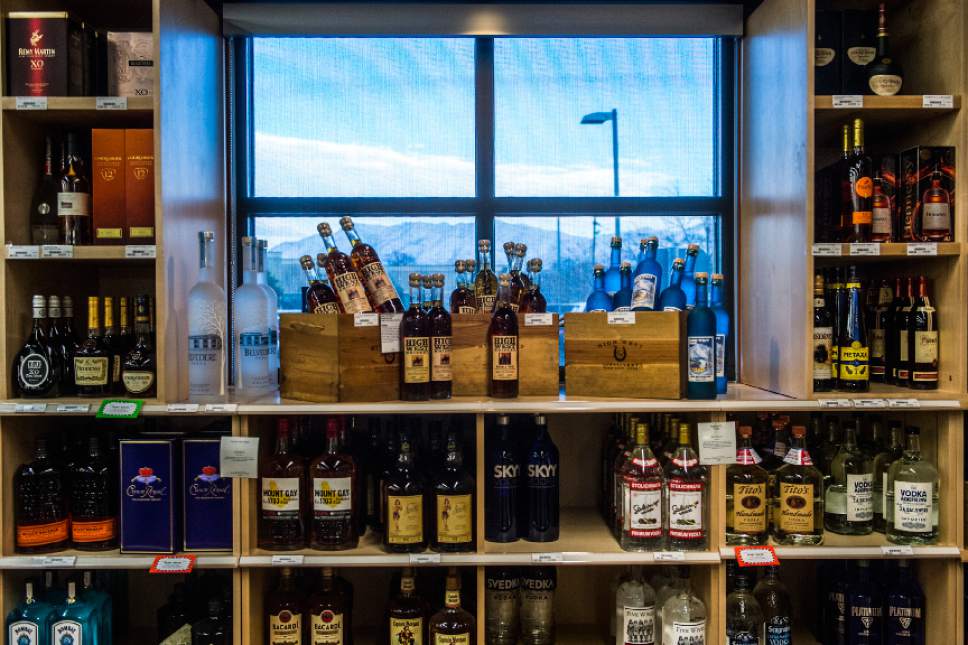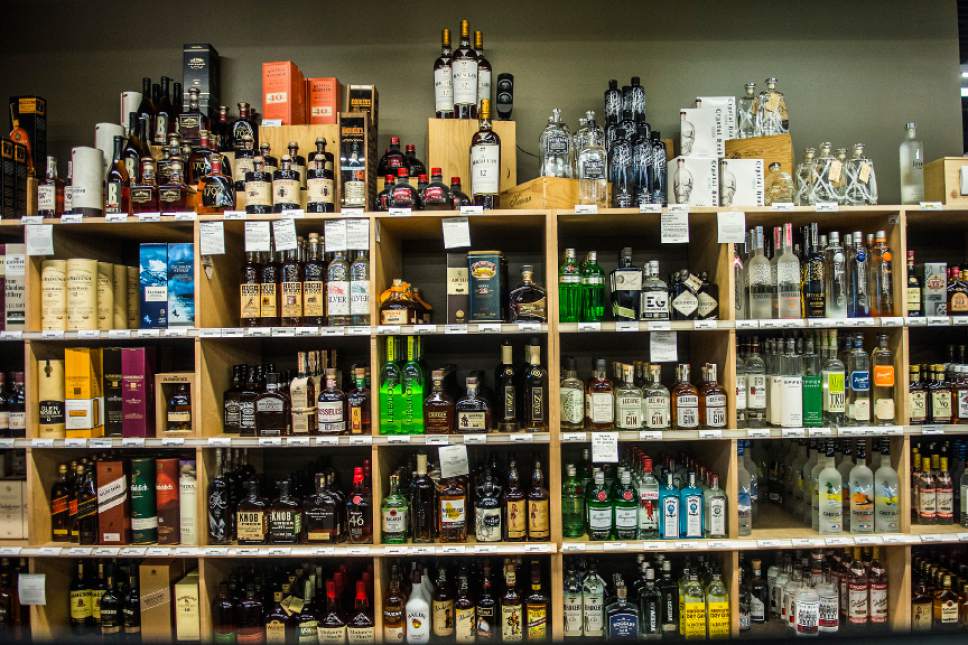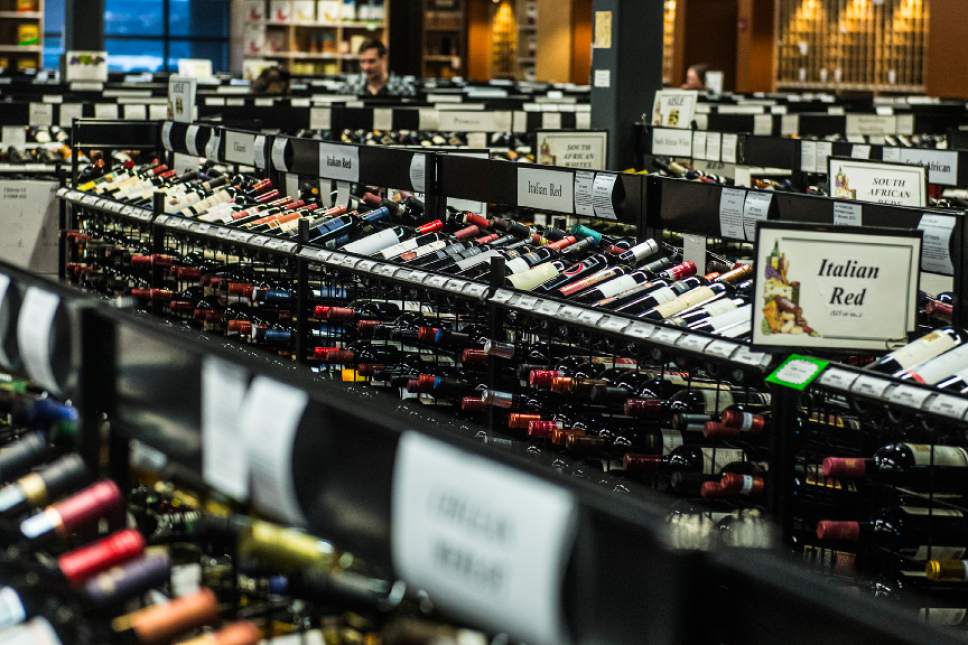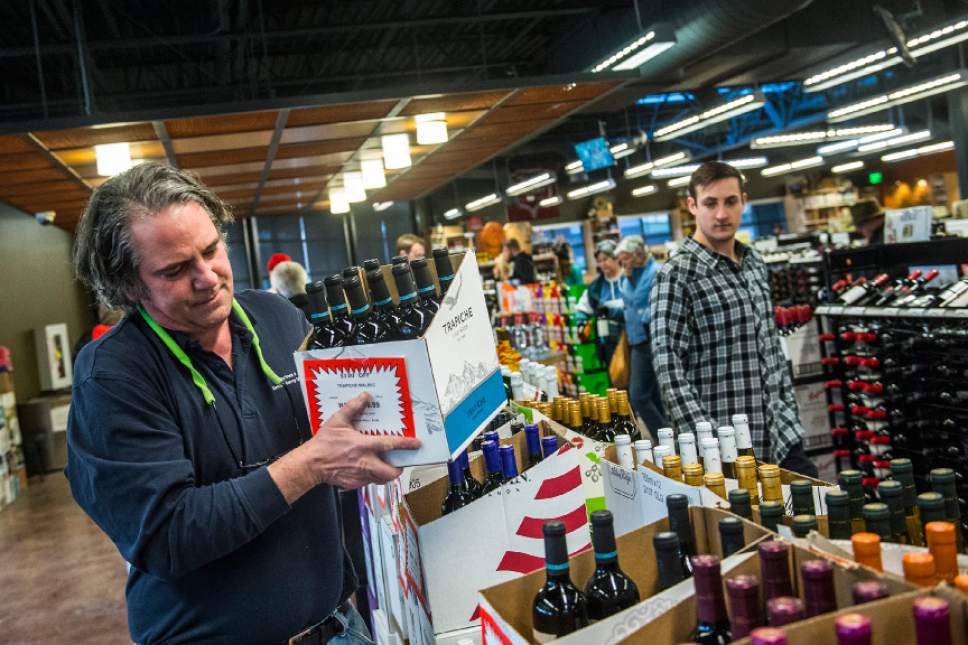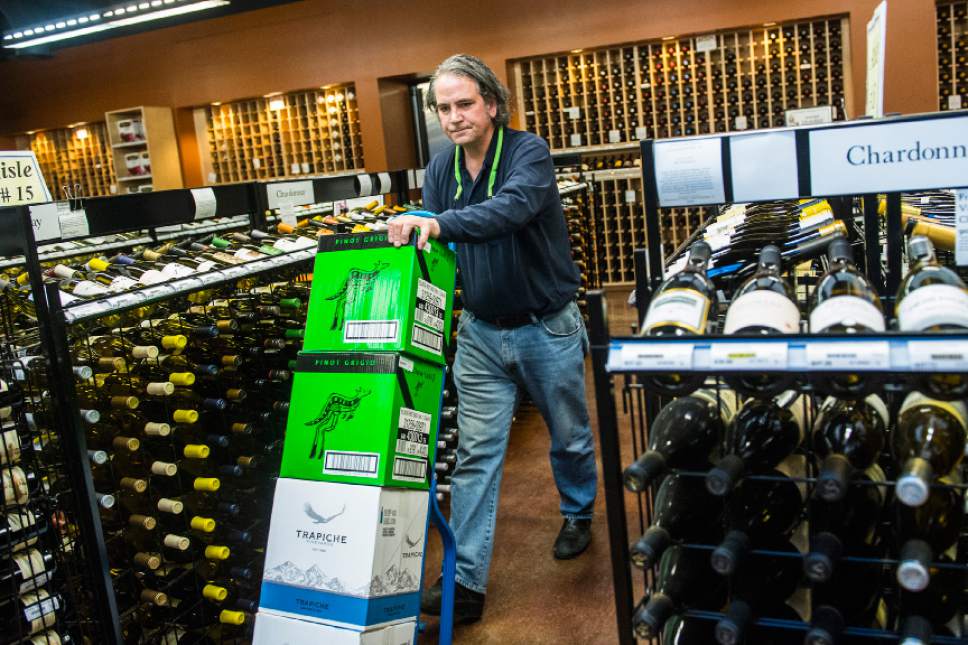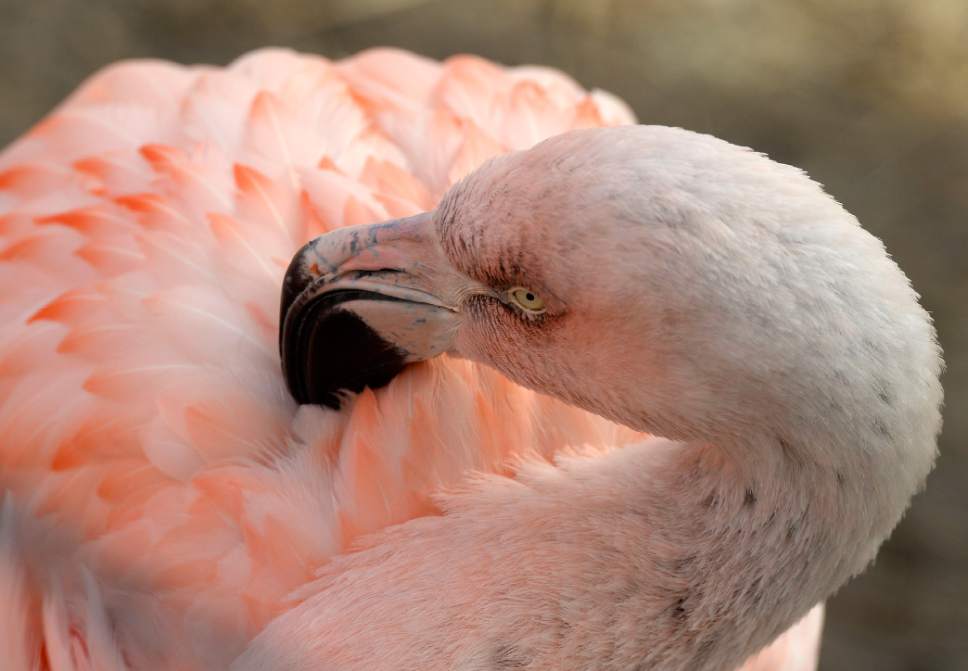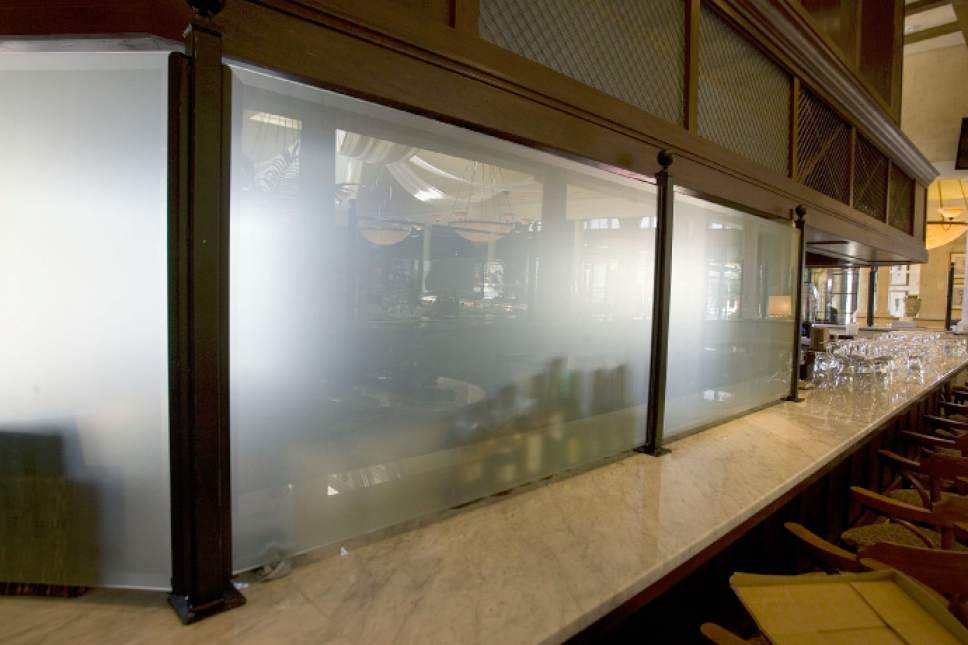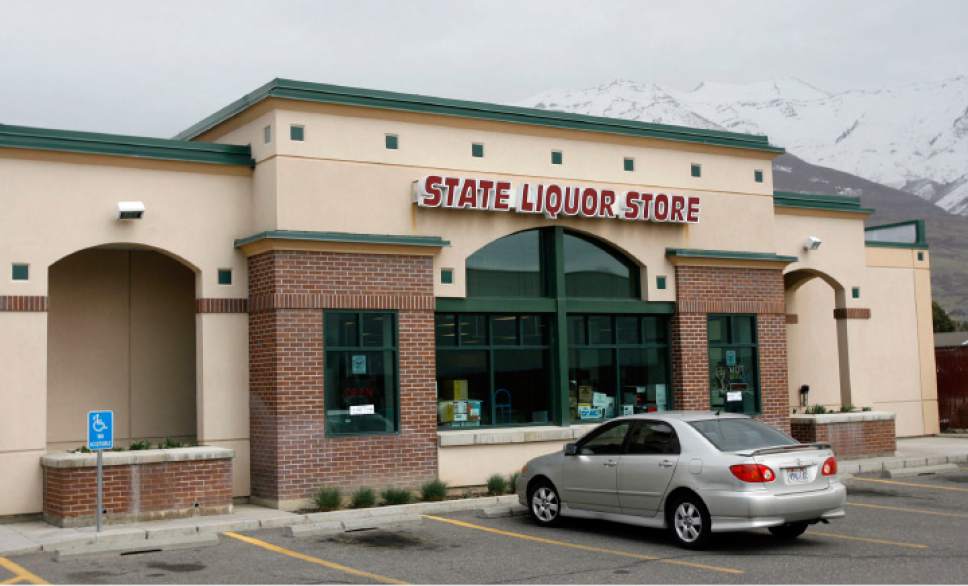This is an archived article that was published on sltrib.com in 2016, and information in the article may be outdated. It is provided only for personal research purposes and may not be reprinted.
Most Utah voters believe the state should get out of the retail liquor business and turn over alcohol sales to the private sector, a new statewide poll shows.
In the survey, conducted for The Salt Lake Tribune and Hinckley Institute of Politics, 57 percent of respondents were in favor of liquor privatization, while 34 percent wanted to keep the current state-run monopoly in place. Nine percent were undecided.
Opinions on liquor privatization split along political and religious lines.
Utah Democrats and independents are much more free-market minded when it comes to liquor sales, with 70 percent of Democrats and 59 percent of independents wanting to turn liquor sales over to the private sector, the poll shows.
Republicans were divided on the issue, with 49 percent in favor of privatization and 43 percent saying they like the status quo.
When religious affiliations are considered, 45 percent of Mormons — who believe in abstention from alcohol — were in favor of privatization, while 46 percent were opposed, according to the survey. Conversely, 75 percent of non-Mormons wanted private sales of liquor, compared with 18 percent who didn't.
The results "are not at all a surprise," says Connor Boyack, president of the Libertas Institute, a libertarian-leaning organization. "Public opposition is mounting against what is clearly an antiquated anti-freedom limitation on adults consuming a legal product."
While the Legislature has discussed privatization several times in the past, these proposals aways face opposition from the Mormon church, some health officials and conservative lawmakers. More than 80 percent of Utah lawmakers are LDS.
Gov. Gary Herbert recently said he opposes privatization because it could mean a loss of revenue to the state and cause higher rates of consumption.
"Because of the LDS Church's support for government's control of alcohol in Utah, it's unlikely that the Legislature would ever deregulate," Boyack said. "Any privatization attempt would have to go directly to the people through initiative."
Alcohol privatization was one of several questions — on a variety of topics — that were posed to 989 registered voters by SurveyUSA. The Tribune/Hinckley Institute poll has a margin of error of 3.1 percent.
While there always have been complaints about Utah's state-run liquor system — mostly from those who imbibe — discontent has escalated in recent months over several specific issues including the Utah Department of Alcoholic Beverage Control's automated distribution system, the state's quirky 7-foot barrier requirement for new restaurants — dubbed the Zion Curtain — and the long wait to get club liquor licenses.
The poll differs from a survey released in 2014 by UtahPolicy.com. In that Dan Jones & Associates poll , 35 percent of respondents believed the state should turn liquor sales over to the private sector, while 31 percent wanted to keep the current system in place.
Another 27 percent favored a hybrid system where the state retains control of hard liquor sales while allowing private retail outlets to sell wine and high-alcohol beer.
Under current state law, grocery and convenience stores can sell beer that is 4 percent alcohol by volume — often referred to as 3.2 beer — but all higher-alcohol beer, as well as wine and spirits, must be sold at state-owned liquor and wine stores.
The monopoly has been a cash cow for the state. In 2014, liquor sales produced a whopping $144.9 million in profit — pumping $38.3 million into the school-lunch program and DUI enforcement, generating $18.8 million in sales tax and turning another $87.8 million back to the state's General Fund, according to DABC statistics.
Marianne Lucchesi Hamilton and her husband moved to St. George two years ago, and while the couple knew Utah had tougher alcohol laws than California, they didn't realize it would be such a "sequestered process."
"Putting adult beverages in a different building in a separate part of town is real extreme," she said. "I'd love to see it brought more into the mainstream."
Lucchesi Hamilton said putting beer and wine into grocery stores "would be a huge step forward and satisfy a lot of constituents."
"It also would make huge financial sense," said the leader of the St. George Wine Club. "I know a lot of people going to Mesquite, [Nev.], on the weekends to buy liquor. Utah is missing out on a whole lot of revenue."


